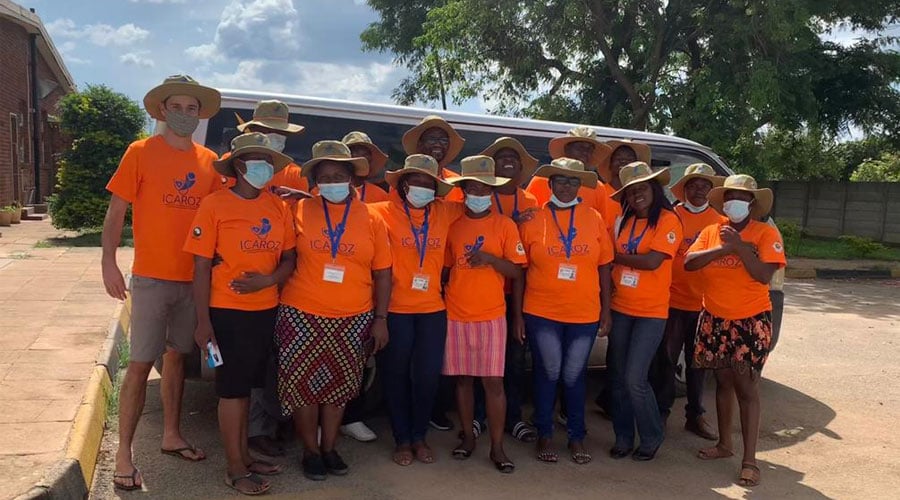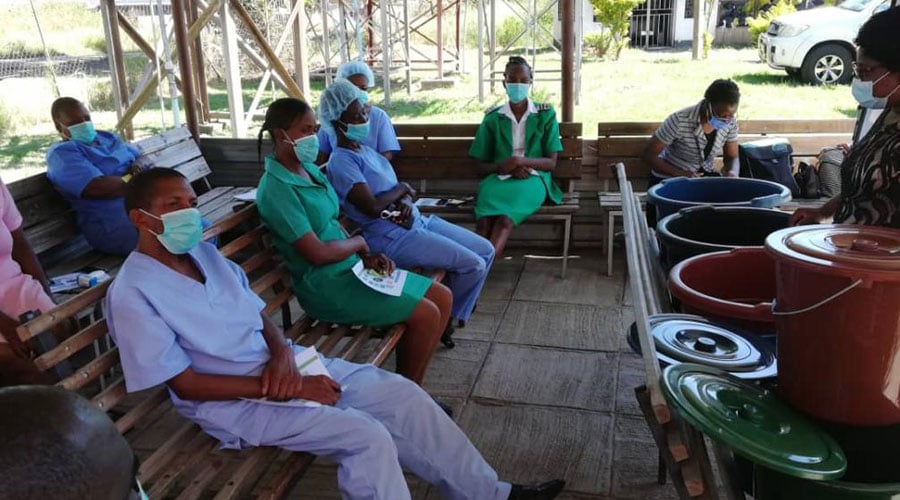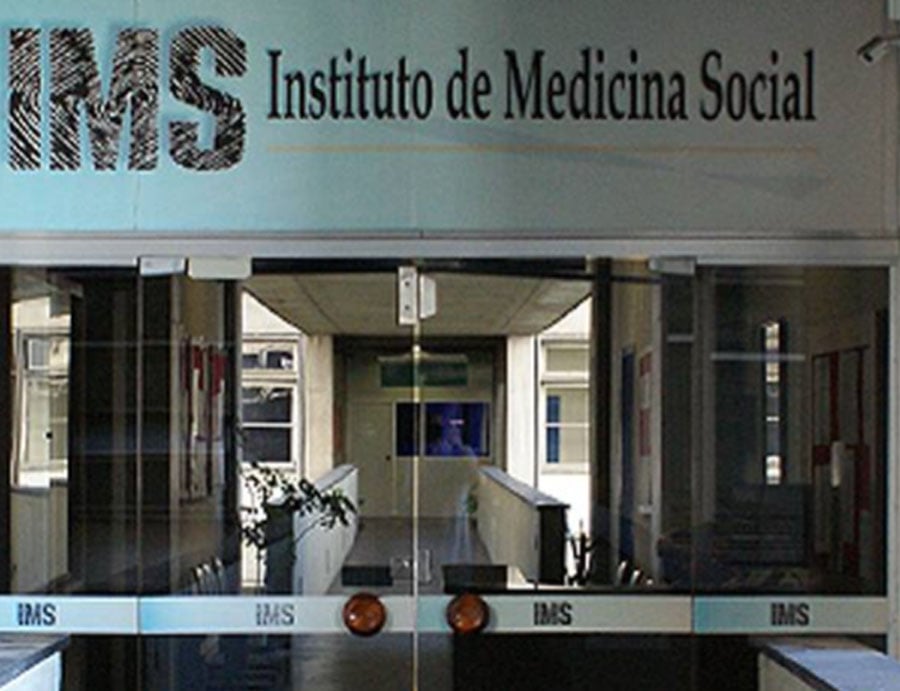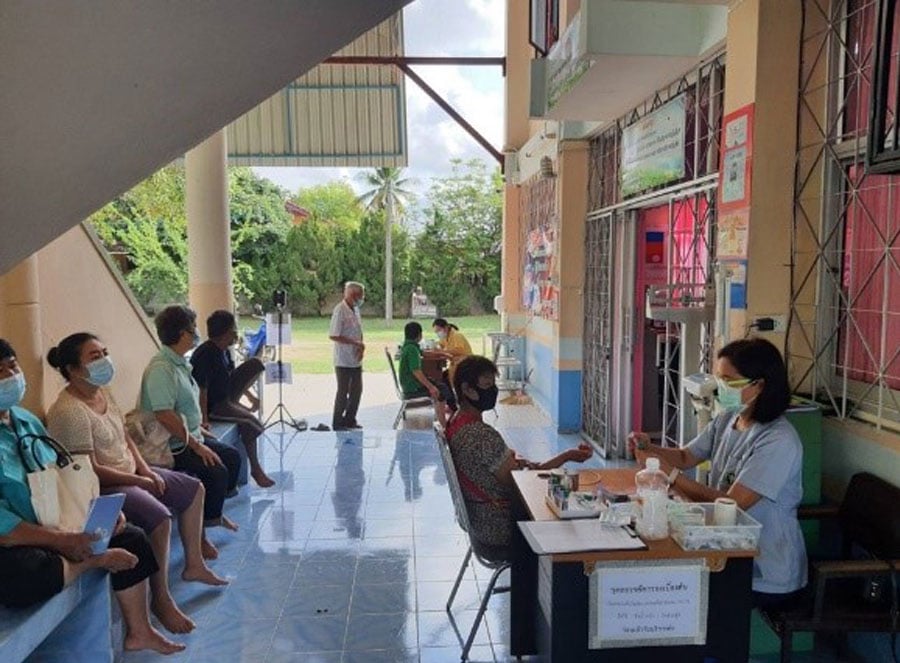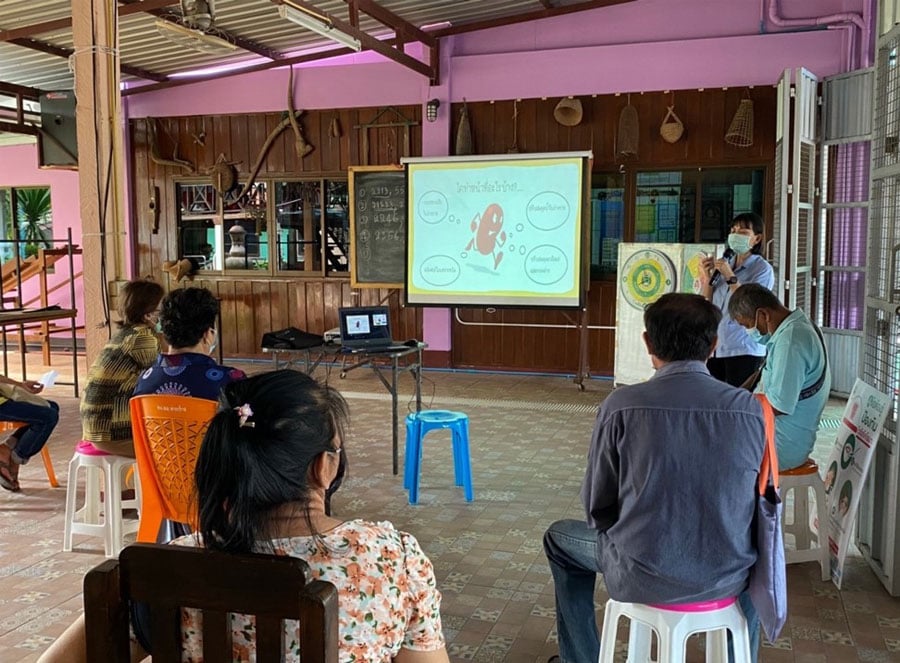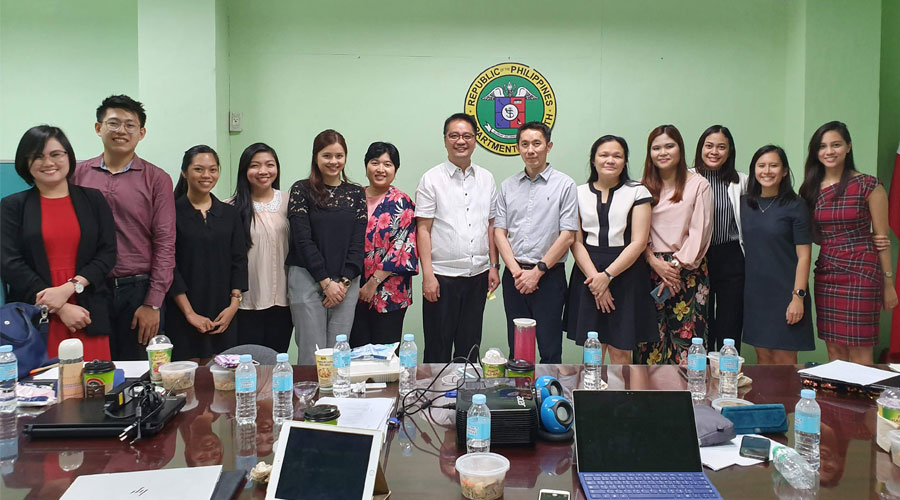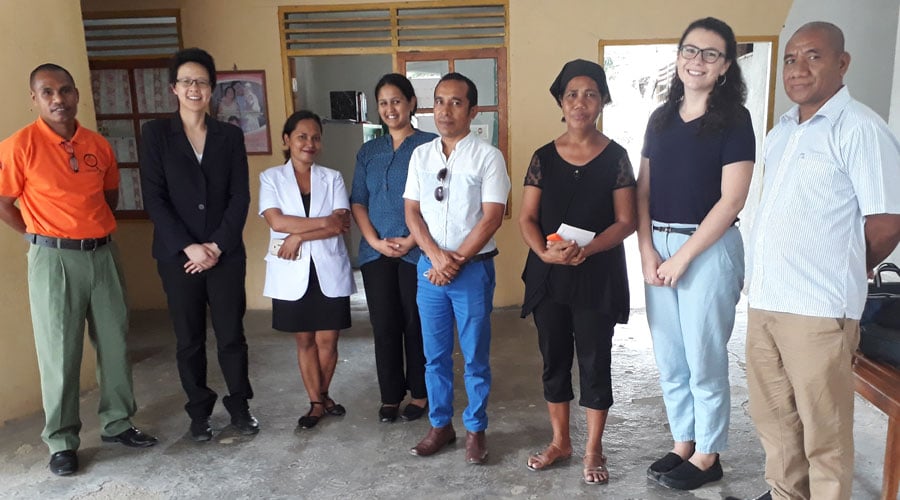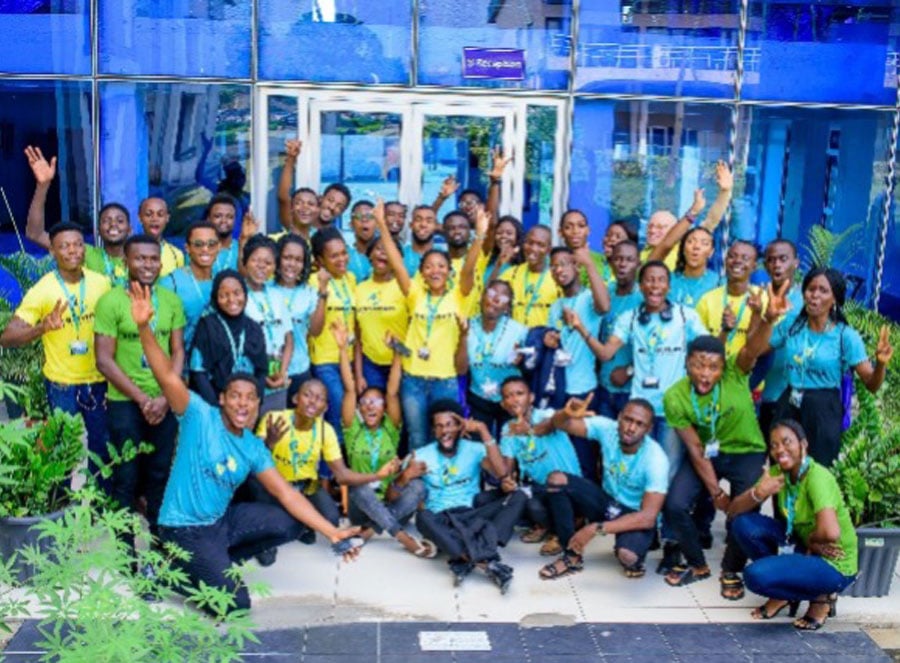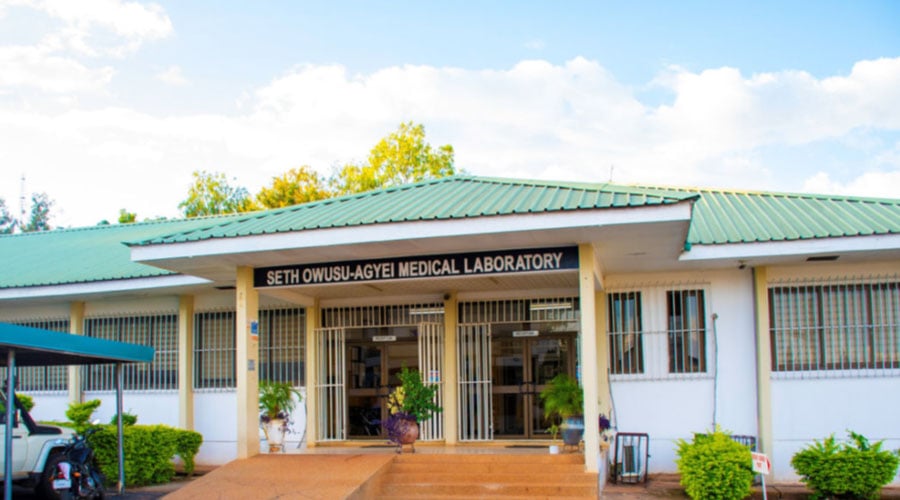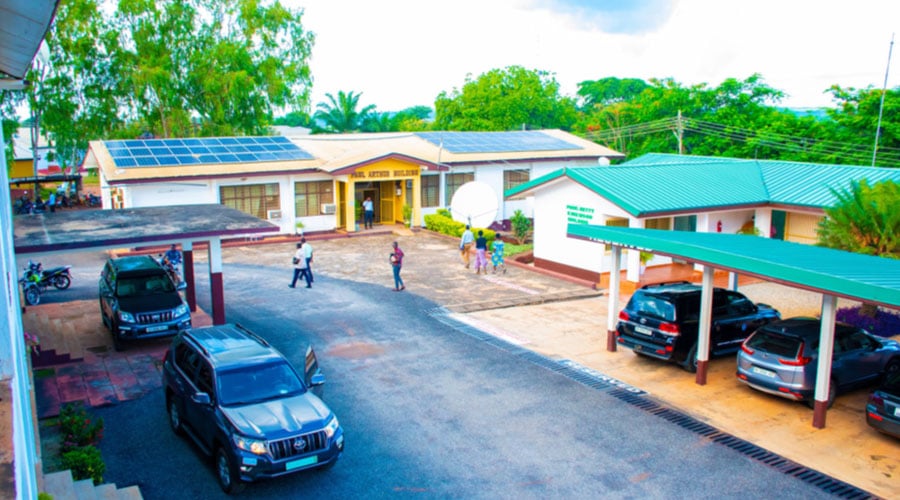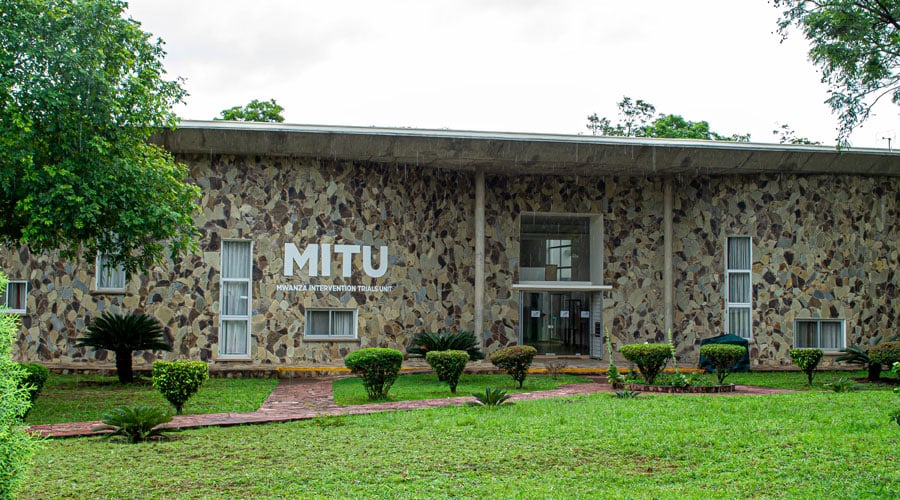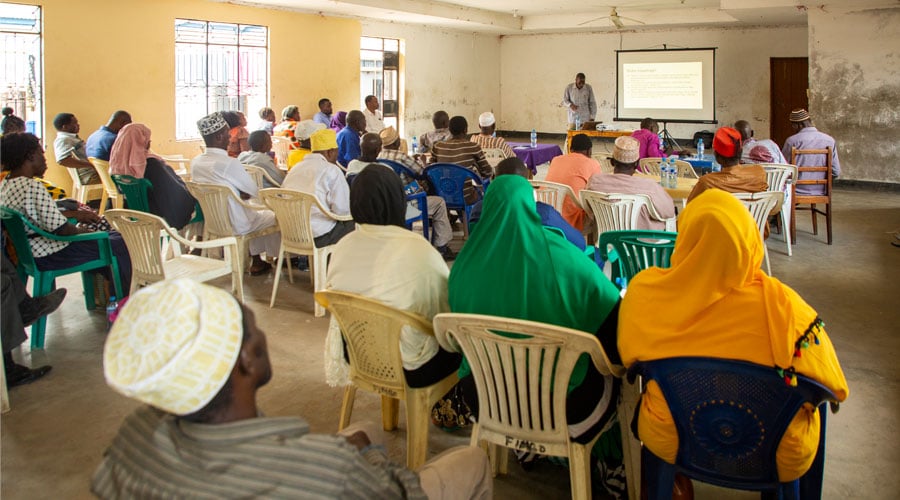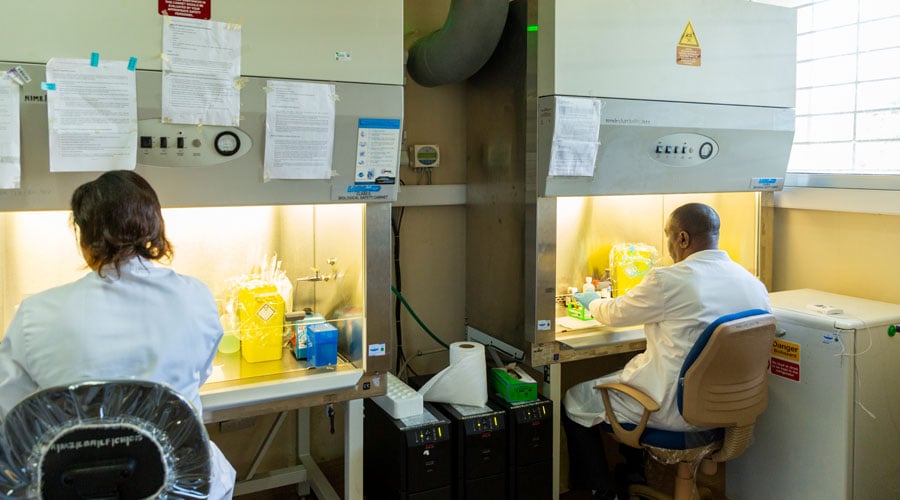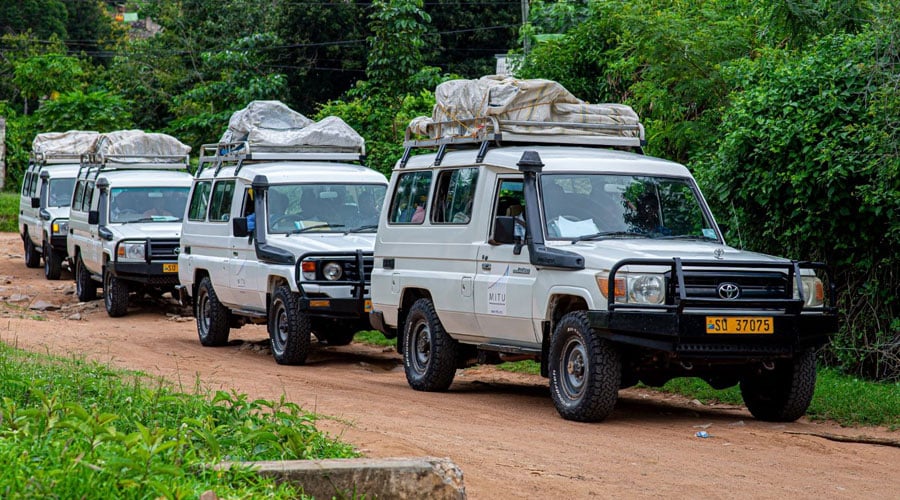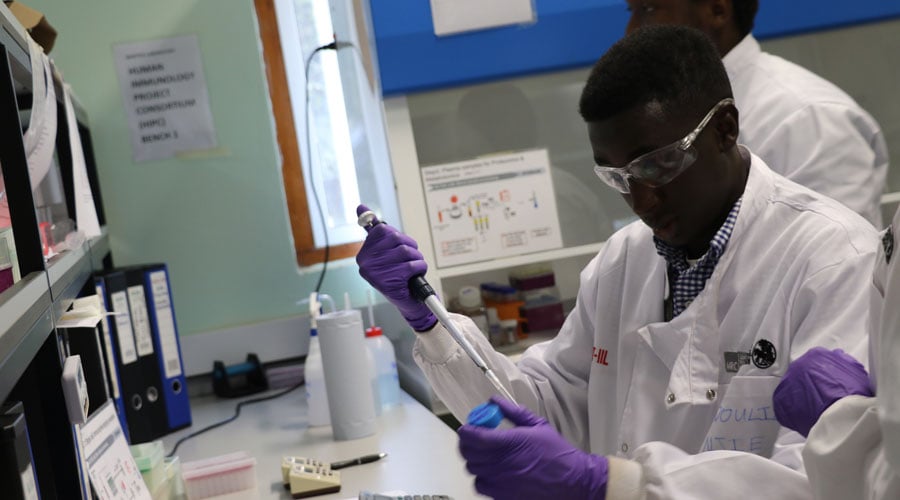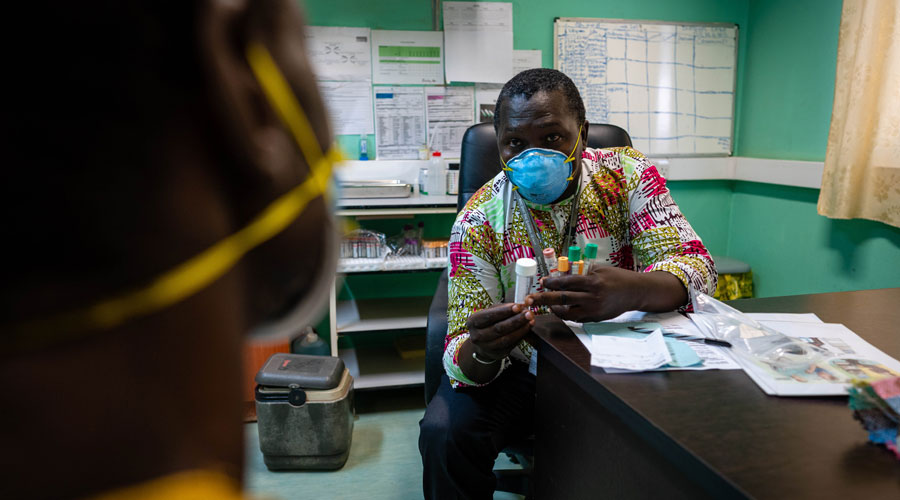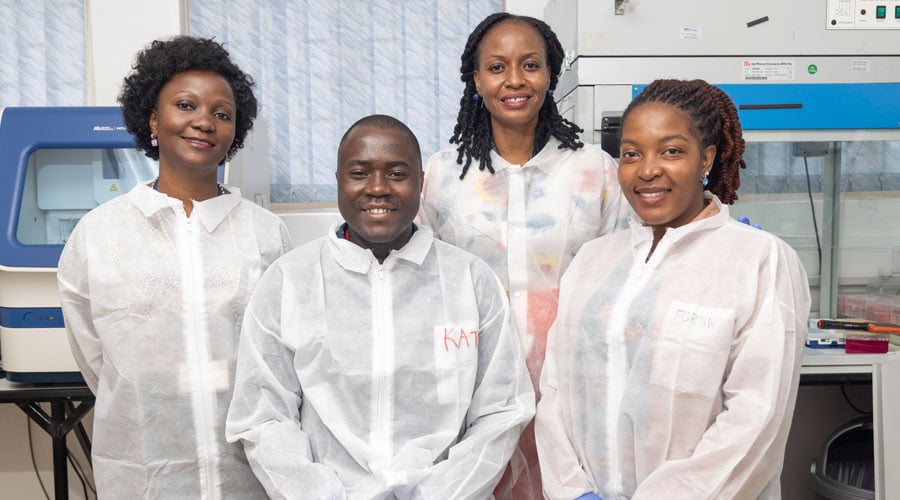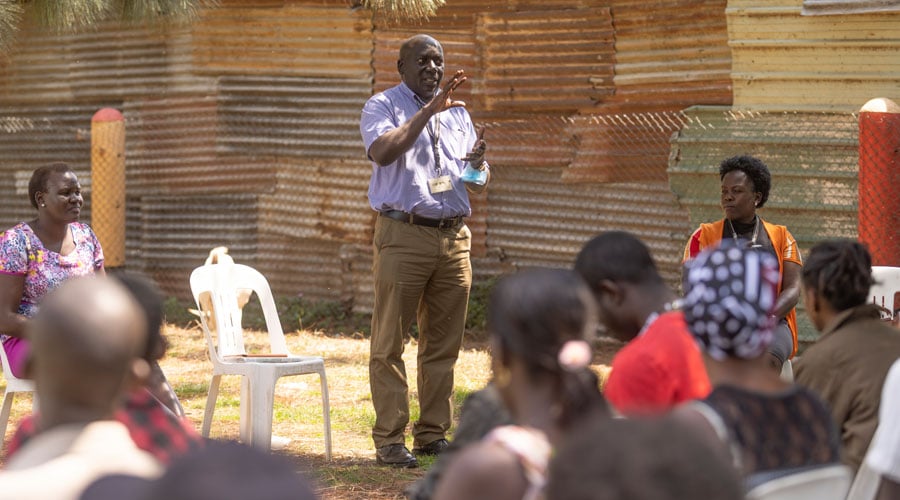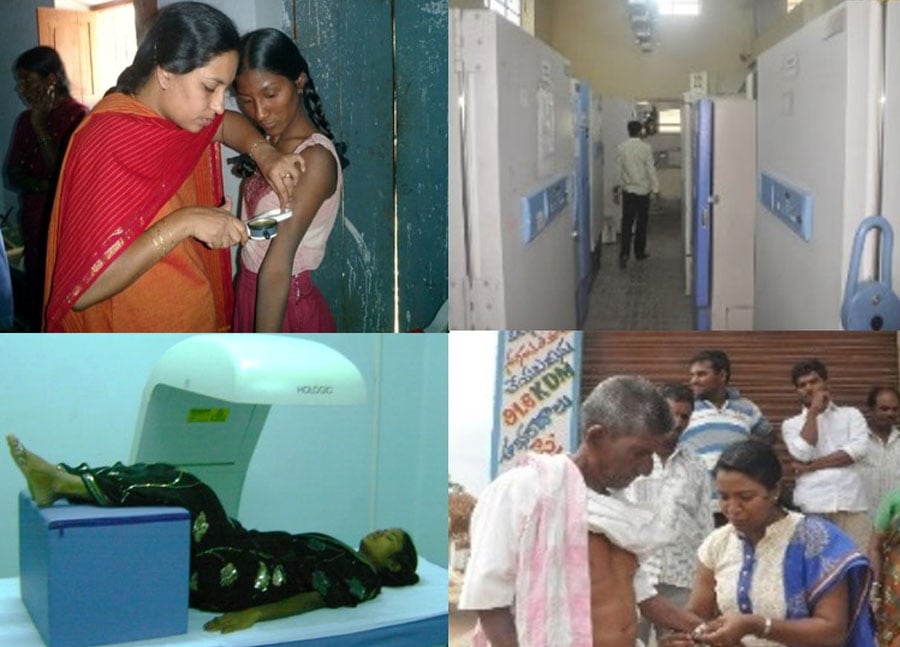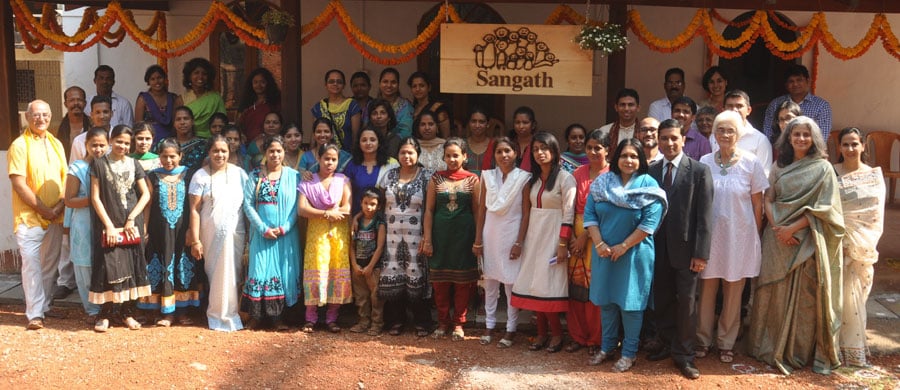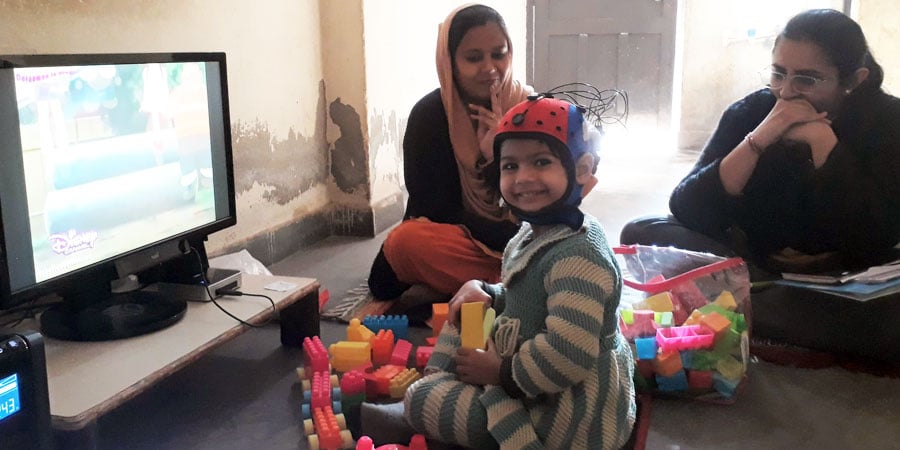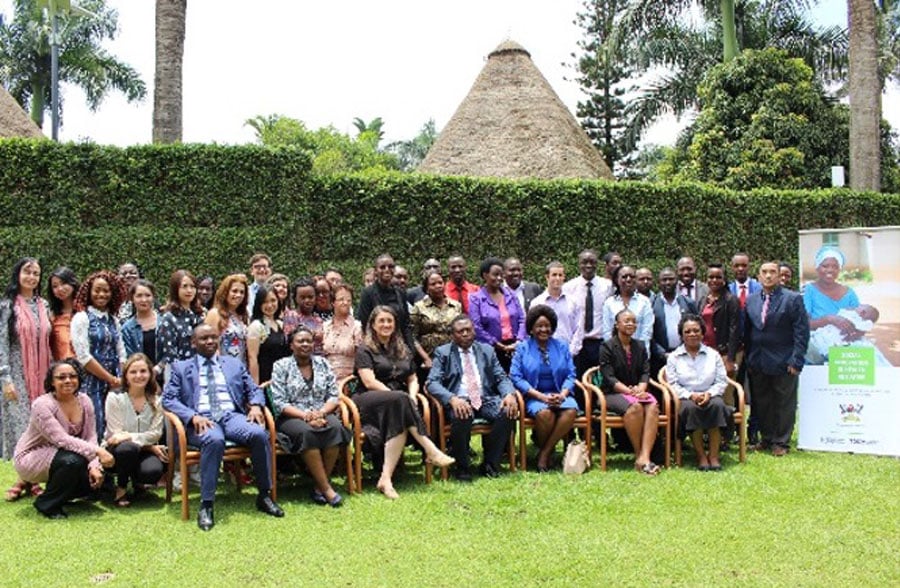Launched in 2021, the CMB Global Health Leadership Development Program is a global health training program sponsored by the China Medical Board (CMB), a US Foundation focused on improving health professional education and training in East Asia and Southeast Asia. The program aims to train young Chinese health professionals in global health research and practice. The goal of this program is to bring together a network of outstanding low- and middle-income country (LMIC) training sites across different regions that have the infrastructure, leadership, and mentoring experience to provide high-quality mentored global health training to the CMB fellows.
The London School of Hygiene & Tropical Medicine (LSHTM), along with Yale School of Medicine (YSM), have been designated as the program operating institutions since 2021. In 2022, Peking University Health Science Center (PKUHSC) joined the program as the China-based program-operating institution. Together, these institutions leverage their resources and expertise in global health education, international collaboration and project management to facilitate the successful program implementation. PKUHSC will have a special role in organizing the pre-departure training for the selected fellows.
Outstanding candidates from universities, hospitals and public health agencies in China have been selected as the 2023 CMB Global Health Leadership fellows, three of whom will start their short-term training at LSHTM in September 2023, followed by a field experience at project sites in Thailand and Zimbabwe.
LSHTM-CMB Global Health Leadership Development Program
LSHTM-CMB Global Health Leadership fellows will be selected each year through a rigorous in-country and external selection process. Early-career researchers who have completed a medical (MD) or research degree (PhD or DPH) in health or public health-related professions will be eligible. Excellent credentials, strong English proficiency, and demonstrated potential as a future global health leader will be required to pass the first-round selection, which will include an interview. Eight finalists will proceed to the second-round selection stage, during which they will identify a potential host site and co-mentor team from the list of pre-approved collaborating LMIC sites —based upon mutual fit—and develop a project proposal which will be reviewed in the second-round selection stage. Up to four fellows will ultimately be selected each year to participate in the program. Trainees will undergo one year of tailored training comprising approximately 3 months of training at LSHTM, and 9 months of hands-on field work at the LMIC host site. The selected fellows will receive a living stipend and project stipend, as well as coverage for insurance, visa and travel to LSHTM and the LMIC site.
Areas of Focus: Trainees will have the opportunity to work with faculty who are experts in a broad range of global health topics including, but not limited to, emerging and high-consequence infectious diseases, health policy and management, public health practice and capacity building, health systems and health services, community health, chronic diseases, women’s health, maternal, neonatal and child health, nursing, and substance abuse.
Program Faculty and LMIC Sites: Program faculty collaborate across selected LMIC sites and projects in Asia, Africa, and South America. Detailed descriptions regarding each site can be found on the individual site description dropdown tabs below.
Yale-CMB Global Health Leadership Development Program
Four Yale-CMB Global Health Leadership fellows will also be selected each year through a rigorous in-country and external selection process. Find out more details regarding the Yale-administered branch of the CMB GHLDP.
Important dates
LSHTM is pleased to announce that the call for applications for the 2024 cohort recruitment is now open. The key dates are as follows:
- 30 September 2024: Application opens
- 10 November 2024: Application deadline for first-round selection
- 11 November – 30 November 2024: Review and interview of first-round applications
- 30 November 2024: Candidates proceeding to second-round are notified
- 16 November 2024 – 31 January 2024: Candidate assessment and trainee-mentor matching
- 1 December 2024 – 31 January 2025: Training plan and project proposal development
- 31 March 2025: Application deadline for second-round selection
- 1 April – 30 April 2025: Review and interview of second-round applications
- 30 April 2025: Announcement of selected fellows
- July 2025: Pre-departure in-person training
- Late summer 2025: Fellowship period starts
Eligibility criteria
- Academic: Early-career researchers who have completed a medical (MD) or research degree (PhD or DPH) in health or public health-related professions and have not been the principal investigator of a grant or have line managed a post.
- Language proficiency: The shortlisted candidates will need to meet Band B of the LSHTM minimum language requirement (the requirement will be waived for applicants who completed their degree in English language in the last 3 years).
How to apply
Stage 1: First-round selection
- Applicants should complete the online application form and submit the following materials in order of 1-4 in a single PDF document to CMBBeijing@cmbfound.org with ‘GHLDP + Applicant’s full name + Yale/LSTHM as the applicant chooses)’ in subject line:
- Personal Statement (in English, maximum 1,000 words)
- Curriculum Vitae (both Chinese version and English version)
- Scanned copy of highest degree certificate
- Scanned copy of most recent academic transcript (if applicable)
- In addition, the following should be submitted directly by referees using their institutional email accounts to CMBBeijing@cmbfound.org with ‘Recommendation + Applicant’s full name’ in subject line:
- Two letters of recommendation (in English, maximum 1 page each)
Candidates who are shortlisted from the first-round selection will be contacted by the CMB to participate in a virtual interview with the expert panel prior to proceeding to the second-round selection.
Stage 2: Second-round selection
- Once proceeding to the second-round, the selected candidates will be invited to attend online introduction meetings hosted by LMIC sites. They will be introduced to ongoing and prospective projects in order to identify a potential host site and co-mentor team. The fellows can express preference for one or two sites.
- The LMIC site faculty and the LSHTM’s program management team will review the received application materials and interview the candidates to decide whether there is a good match.
- Candidates who have been matched to a site will be invited to discuss potential project ideas with the site mentors and the LSHTM program management team before developing a project proposal and training plan.
- The following materials should be submitted to Sylvia.marinova@lshtm.ac.uk
- Preliminary project proposal (maximum 1,000 words) briefly describing the project rationale, aims, design, methodology, analysis, evaluation plan or expected outputs.
- Training plan (maximum 600 words) outlining key skills to be acquired during the fellowship year and planned time spent at LSHTM and at the LMIC site.
- Letter of support from the site mentor
- Each application will be independently reviewed and scored. The application materials and all score sheets will be reviewed by the leadership team, and a selection meeting will be held to make the selection/site placements recommendations
For further details, please visit the FAQs and the Program flyer.
Possible LMIC sites and programs
- The Biomedical Research and Training Institute, Zimbabwe
Focus
Clinical research, epidemiology, implementation science, mixed-methods studies, observational and interventional studies including clinical trials and public health interventions.
In particular we welcome applicants with interest in the areas of adolescent health, HIV, sexual and reproductive health, tuberculosis, sexually transmitted infections, antimicrobial resistance, multimorbidity, ageing, musculoskeletal and rheumatologic disease, women’s health.
LMIC Affiliation
The Biomedical Research and Training Institute, Zimbabwe
Site mentors/contacts
Site description
BRTI was registered in Zimbabwe in 1995 as a non-profit organization. The Institute implements research projects and provides training and support services in public health, biomedicine and health research focusing on public health issues that are of importance in the region. Its mission is to promote the health and quality of life of the peoples of Zimbabwe and the Southern Africa Development Community (SADC) region through fostering research, training and research informed interventions in all fields that are relevant to essential national health needs. The BRTI hosts individual researchers and research groups; its main role is to provide the infrastructure and support that researchers require to conduct studies and facilitate the translation of science of science into policy.
The Zim-LSHTM Partnership is a collaboration between LSHTM and BRTI that includes over 100 staff. The Research Group conducts interventional and observational studies in primary and secondary level health facilities as well as in community-based settings. Potential Chinese Scholars will have the opportunity to gain experience and develop skills in field studies, data analysis and public engagement. The group has extensive experience in conducting interdisciplinary studies and there will be an opportunity for the fellow to become involved in ongoing studies and/or to develop and implement their own research study. The group has particular expertise in implementation science as well as clinical studies. The group includes doctoral and postdoctoral students and works in close collaboration with the Ministry of Health and Child Care. There are regular educational opportunities including a PhD club that is very popular, regular project meetings where study implementation issues are discussed and writing workshops. The Chinese scholars will be mentored by Professors Rashida Ferrand and Katharina Kranzer both of whom are based fulltime in Zimbabwe.
LMIC site websites
Ongoing projects
BRTI health care workers Training health care workers on Infection prevention control - The Cancer Survival Group (multiple locations)
Focus
Epidemiological research; cancer registration; survival analysis; methodology; trends and international, socio-economic and racial inequalities in survival; life tables; public health and health policy applications.
LMIC affiliation
The Cancer Survival Group project
Site mentors
Site description
Research in the Cancer Survival Group at LSHTM is designed to provide reliable evidence on trends and inequalities in population-based cancer survival to inform local, national and global strategies for cancer control.
Our research may be considered in three overlapping themes:
(a) global surveillance of trends and inequalities in cancer survival (CONCORD and VENUSCANCER programmes);
(b) health policy applications of cancer survival research, and
(c) methods, tools and guidelines for monitoring cancer survival.
CONCORD is the programme for world-wide surveillance of trends in cancer survival. It is endorsed by 40 national and international agencies. CONCORD-3 examined survival trends among 37.5 million patients diagnosed with one of 18 cancers during 2000-2014 in 71 countries. VENUSCANCER is the global high-resolution study designed to examine the causes of inequalities in survival and avoidable premature deaths from women's cancers. These are world-wide scientific collaborations, involving 600 investigators in over 300 institutions in over 70 countries.
Chinese scholars will have the opportunity to participate in the short course Cancer survival: principles, methods and applications, run by the Cancer Survival Group. They will become involved in data collection, quality control, analysis and interpretation of survival estimates derived from population-based cancer registries. They will work with mentors such as Michel Coleman, Professor of Epidemiology and Vital Statistics; Claudia Allemani, Professor of Global Public Health (LSHTM) and Gulnar Azevedo e Silva, Professor and Director of the Institute for Social Medicine at the State University of Rio de Janeiro (Brazil).
LMIC site website
Instituto de Medicina Social - The Faculty of Medicine, Chiang Mai University, Thailand
Focus
Primary health care, multimorbidity and healthy ageing, and behavioural intervention research in Thailand using electronic health records, mobile health, and machine learning. We welcome applicants with strong background or interest in behavioural science or quantitative methods including machine learning.
LMIC affiliation
Faculty of Medicine, Chiang Mai University, Thailand
Site mentors
Site description
We have strong programs of research in:
a) behavioural interventions including self-management of chronic conditions and use of mobile devices, and
b) primary healthcare including multimorbidity and healthy ageing.
We are currently doing a clinical trial of a culturally tailored diabetes self-management program delivered by village health volunteers, and further development (and evaluation) of this program to other chronic conditions is planned. We have access to routinely collected electronic health records in Thailand, which is being curated for analyses using data science and machine learning approaches to study chronic conditions including multimorbidity. A key area of research interest is using mobile and other technology to support community health workers in the delivery of primary care and self-management of chronic conditions. Seconded post-docs would be encouraged to contribute to the above programs of research or collaboratively develop new research areas of mutual interest. Both supervisors are clinicians with expertise in behavioural and data sciences.
LMIC site websites
Primary care units in Chiang Mai Province, Thailand Patient Education program - The Health Intervention and Technology Assessment Program, Thailand
Focus
Health Intervention and Technology Assessment (HITA), economic evaluations, health service research, policy evaluations, big data, institutionalisation of evidence-informed policy making, capacity building
LMIC affiliation
Health Intervention and Technology Assessment Program (HITAP)
Site mentors
Point of contact
Site description
HITAP is a health intervention and technology assessment agency in Thailand which has been building capacity in HTA across South-East Asia and more recently, in Sub-Saharan Africa.
A scholar from China with interest in HTA/health economics/evidence-informed policy development can go to Thailand to work on a project with HITAP involving supporting HTA in a partner country (e.g. Vietnam, Philippines, Indonesia etc.). The scholar will be part of a dynamic and experienced team that strives to build capacity for evidence-informed policymaking. The scholar will be based at the HITAP office in Thailand. Activities will include delivering trainings, supporting technical studies, facilitating stakeholder engagement and developing knowledge products, among others. These activities may be held virtually, or in-person in partner countries, depending on the prevailing travel conditions due to COVID-19.
The organisation is experienced in supervising master and PhD students from both Thailand and overseas and has offered an International Internship Programme.
The mentorship team will include Mark Jit, Professor of Vaccine Epidemiology from LSHTM and Dr. Yot Teerawattananon, Dr. Wanrudee Isaranuwatchai and Ms. Saudamini Dabak from HITAP.
LMIC site websites
Discussions on process and methods guidelines, the Philippines, 2019 Conduct health service research, Timor Leste 2018 - The Institute of Medical Research, Nigeria
Focus
Adolescent health, participatory research, crowdsourcing open calls, collective intelligence, randomized controlled trials, clinical trial development, implementation science, sustainability. We welcome applicants with an interest in social innovation, hackathons, health technology, m-health interventions, longitudinal analyses, and youth-friendly health services.
LMIC affiliation
The Nigerian Institute of Medical Research, Lagos
Site mentors
Site description
The Nigerian Institute of Medical Research (NIMR) is the pre-eminent medical research institute created by the Federal Government in Nigeria. NIMR has an ongoing Fogarty D43 Global Infectious Diseases training grant, providing unique opportunities for career development and learning. The 4YouthByYouth research project focuses on using crowdsourcing to develop HIV self-testing services for youths in Nigeria. Crowdsourcing has many individuals solve a problem and then share solutions with the public. Crowdsourcing methods have been used extensively in China to improve health and developed people-centred health services. An ongoing stepped wedge randomized controlled trial will examine the effectiveness of the crowdsourced approach compared to a conventional approach. This study is supported by a five-year United States National Institutes of Health U01 grant. This research project brings together mentors from Southern Medical University (Guangzhou, China; Dr. Weiming Tang), LSHTM (London, United Kingdom; Associate Professor Joe Tucker), and the Nigerian Institute of Medical Research (Lagos, Nigeria; Prof. Oliver Ezechi). Dr. Tucker has a special interest in mentoring and is supported by an NIH mid-career mentoring award.
- This position would be relevant for postdoctoral scholars interested in implementation research, participatory interventions, decision science, behavioural economics or open innovation.
- Potential opportunities within this site include the following:
- Manuscript writing. Each scholar would have an opportunity to lead a small research project and develop a manuscript for submission to a peer-reviewed international journal. This could include a secondary analysis from the randomized controlled trial, a literature review, or topic related to adolescent health. For example, a recent postdoctoral fellow working on this project wrote a scoping review. Participatory research. The study team has a special interest in participatory research and how to promote grounds-up innovation in Nigeria. The Scholar would have an opportunity to take part in the design, implementation, and evaluation of participatory research activities. For example, trainees have helped to develop crowdsourcing open calls, designathons, innovation bootcamps, and related events. Capacity building. The Scholar would benefit from lectures, training, and short courses that are organized by 4YBY, NIMR and LSHTM.
LMIC site website
Crowdsourcing participants in Lagos, Nigeria Nigerian Institute of Medical Research – pre-eminent medical research facility in Nigeria - Kintampo Health Research Centre, Ghana
Focus
Clinical research, vaccine trials, infectious diseases such as malaria, COVID-19, epidemiology, prevention, health services and health policy aspects, climate change and planetary health
LMIC Affiliation
Kintampo Health Research Centre, Ghana
Site mentors/contacts
Site description
The Kintampo Health Research Centre, Ghana (KHRC) was established about 30 years ago in the Bono East Region, middle belt zone of Ghana. KHRC is one of the three health research centres of the Research and Development Division of the Ghana Health Service. KHRC offers a unique platform for the conduct of high-quality public health and biomedical research to shape local and international health policies, programmes and practices.
KHRC has long-standing collaborations with LSHTM spanning over 20 years. The research portfolios of KHRC include clinical research, vaccine trials, infectious diseases such as malaria, COVID-19, epidemiology, prevention, health services and health policy aspects, climate change and planetary health. KHRC is one of the 11 African sites where the first licenced malaria vaccine, RTS’S, was tested. KHRC is also one of the three sites in Africa selected by the World Health Organisation for pilot implementation of the first licenced malaria vaccine, RTS’S.
LMIC site website
Kintampo Health Research Centre
Ongoing projects
- Development of a first-generation malaria vaccine research agenda
- Malaria vaccine pilot evaluation-case control
- Sanofi phase III COVId-19 vaccine trial
- COVID-19 vaccine effectiveness study
- EPI-MAL 003
- Dementia diagnostic validation study
- Anaemia sub-study (ReMAPP)
- Kintampo health demographic surveillance system
- Lassa Fever study
- Reducing household air pollution in Ghana through community-level transition
- Child lung function study
- Targeted subsidy for LPG adoption study in peri-urban community
Central laboratory with microbiology, haematology, molecular biology and immunology facilities An aerial view of the Paul Arthur and Prof. Betty Kirkwood buildings housing the central administration and research staff offices - The Mwanza Intervention Trials Unit (MITU), Tanzania
Focus
Epidemiology, social science, HIV prevention, care and treatment, human papillomavirus (HPV) vaccination and cervical cancer prevention, non-communicable diseases and related risk factors, reproductive health-related research, women’s health, research on the health of adolescents and young people and implementation science research
LMIC affiliation
Mwanza Intervention Trials Unit/National Institute for Medical Research, Tanzania
Site mentors/contacts
Site description
The Mwanza Intervention Trials Unit (MITU) was established in 2006 by the Tanzania National Institute for Medical Research (NIMR) and the London School of Hygiene and Tropical Medicine (LSHTM). Its mission is to contribute towards improving health through the development and evaluation of interventions against HIV and other health problems by conducting research, including intervention trials to the highest international standards; enhancing the capacity to carry out such research in Tanzania and the East African region; and contributing to the translation of research findings into health policy in partnership with other stakeholders.
MITU’s research activities focus on the development and evaluation of health interventions, often through randomized controlled trials (RCTs). This strategic focus distinguishes the Unit from other research institutions in the region and contributes to its status as a centre of excellence in the design and conduct of intervention trials. The Unit also conducts observational studies, to provide an epidemiological evidence base for intervention trials, and promotes integration of research findings and evidence into healthcare policy and practice.
MITU has a diverse body of staff, including social scientists, epidemiologists, anthropologists, statisticians, physician-scientists and data managers. Potential Chinese Scholars will have the opportunity to gain experience and develop skills in epidemiological studies, field methods, clinical trials, qualitative methods, data management and public and stakeholder engagement. The Unit has extensive experience in conducting interdisciplinary studies and there will be opportunities for the fellows to get involved in ongoing studies and/or to develop and implement their own research interests.
The Unit offers opportunities to network and learn through bi-monthly seminars with presenters from within the Unit and other research and academic institutions both locally and internationally. Fellows will also interact with other fellows such as the Fogarty scholars who are part of a capacity building programme aimed at strengthening patient-oriented HIV clinical investigation. Similarly, projects hold regular meetings to discuss study implementation issues.
The Chinese scholars will be mentored by seasoned scientists based at the Unit, including Professor Saidi Kapiga, Prof Robert Peck, Dr Elialilia Okello and Prof Deborah Watson-Jones. Additionally, scholars will benefit from MITU collaborations such as the Catholic University Of Health And Allied Sciences (CUHAS), Weill Cornell Medical College and NIMR who will also provide mentorship.
Site website
Mwanza Intervention Trials Unit (MITU)
Ongoing projects
Mwanza Intervention Trials Unit (MITU) research programme
Mwanza Intervention Trials Unit (MITU) site Training seminar for Muslim and Christian religious leaders on high blood pressure Laboratory scientists working in a Biosafety Level 3 lab MITU vehicles arriving from a vaccination field activity - The MRC Unit The Gambia
Focus
Clinical research, epidemiology, prevention, health services and health policy aspects. In particular we welcome applicants with interest in the areas of infectious diseases (malaria, TB, vaccine-preventable diseases, e.g. pneumococcal disease), nutrition, planetary health.
LMIC affiliation
The MRC Unit The Gambia
Site mentors
Point of contact
- Dr Assan Jaye, Head of the Training and Career Development Department
Site description
The MRC Unit The Gambia at the LSHTM (MRCG) represents an exceptional concentration of scientific expertise and high‐quality research platforms in the West African Region. The Unit started its activities in 1947, one year before the establishment of the National Health Service in the UK, and since then has played a major role in improving human health across the world. The Unit’s strength in research is based on the combination of excellent laboratory facilities and easy access to the field with well‐defined populations highly supportive of our research, excellent clinical services, rigorous ethical procedures and ability to deliver GCP‐compliant clinical trials, all of which permit the timely implementation of complex research protocols/studies. The Unit implements ground‐breaking research on high‐burden diseases in West Africa, particularly those affecting high risk populations such as neonates and pregnant women, and spans the breadth of fundamental, mechanistic science, observational epidemiology, through to the evaluation of preventive or curative interventions (trials of vaccines or treatments, community‐based interventions) and their translation into health policies (medical anthropology, health economics, health system).
Research is carried out by 3 Research Themes (Disease Control & Elimination; Vaccines & Immunity; and Nutrition & Planetary Health) that benefit from the core‐supported strategic platforms, e.g. Health and Demographic Surveillance System; Genomics, and of the research services, including clinical laboratories accredited ISO 15189. The main site is in Fajara, on the Atlantic coast, where the main laboratories and services are located. The Unit has 2 field stations inland, one in Keneba, at about 2-hour drive from the coast and the other in Basse, at about 5-hour drive from the coast.
Potential Chinese Scholars will have the opportunity to:
- Gain practical research training and experience through embedment in research teams at the MRCG and rotations across laboratories to understand lab contribution to epidemiology.
- Take part in a range of complementary activities, including transferable skills, relevant seminars, networking opportunities, etc.
They will be mentored by Professor Umberto D’Alessandro, Director of the MRC Unit the Gambia and by other senior scientists based in The Gambia, depending on the project(s) in which they will be integrated.
LMIC site website
Laboratory facilities at the LSHTM MRC Gambia unit Providing quality care at the Unit’s TB Clinic - MRC/UVRI and LSHTM Uganda Research Unit
Focus
Viral pathogens, vaccines research and non-communicable diseases
LMIC affiliation
The Medical Research Council/Uganda Virus Research Institute (MRC/UVRI) and LSHTM Uganda Research Unit
Site mentors/contacts
Site description
The Medical Research Council/Uganda Virus Research Institute (MRC/UVRI) and LSHTM Uganda Research Unit is an internationally recognized centre of excellence for research and training. Our research is structured around three core themes: Viral Pathogens led Professor Pontiano Kaleebu, Vaccines Research led by Professor Alison Elliott and Non-communicable Diseases led by Professor Moffat Nyirenda. This research is supported by carefully chosen and optimized platforms, including the General Population Cohort, Clinical Research & Trials Platform, Clinical Diagnostics Laboratory & Biobanking Platform, Immunology Platform, Sequencing Platform, and the Uganda Medical Informatics Centre (with high-performance computing capacity).
Through our multidisciplinary approach, spanning basic science, clinical, epidemiological research and social-behavioral studies, we contribute valuable insights into changing epidemics and diseases (eg HIV, other viral infections, TB, helminth infections, diabetes and cancer), innovative healthcare options and health policy development, not only in Uganda but Africa and worldwide at large.
We are based at the Uganda Virus Research Institute (UVRI), Entebbe campus, with outposts in Kyamulibwa and Masaka, Uganda. Our strategic affiliation with LSHTM and MRC UK (where we receive core funding) positions us uniquely for research excellence. Our close relationship with UVRI, which is an institution of the Uganda Government, means that the Unit is well placed to align its research to the national strategy and to effectively translate our findings.
The Unit has a strong training and capacity building programme with a dedicated training office. We have a track record of hosting visiting scientists, including early-to-mid career researchers and students, from both local and international institutions.
Potential Chinese fellows will have access to this rich research and training environment. This will include opportunities to gain hands-on experience in field studies, data collection and analysis, as well as utilizing archived samples and existing datasets. The Chinese scholars will be mentored and supported by Professors Kaleebu, Elliott and Nyirenda, as well as other senior scientists within the research Themes.
LMIC site website:
MRC/UVRI and LSHTM Uganda Research Unit
Dr Sheila Balinda (second from right) leads her team to identify novel adenovector for vaccine development Dr Freddie Kibengo undertaking community engagement exercise - The National Institute of Nutrition, India
Focus
Multimorbidity and healthy ageing, life-course, and nutrition research, exposure assessment, integrating Omics, mobile health, and machine learning. We welcome applicants with strong background or interest in multimorbidity, ageing or quantitative methods including machine learning.
LMIC affiliation
National Institute of Nutrition (Indian Council of Medical Research), Hyderabad, India
Site mentors
Site description
The Andhra Pradesh Children and Parent Study (APCAPS) is a large prospective, intergenerational cohort study in Southern India that began with the long-term follow-up of the Hyderabad Nutrition Trial (1987-1990). It is situated in 29 villages near the city of Hyderabad in Ranga Reddy district, Andhra Pradesh. Detailed data on chronic disease outcomes at multiple time points (N=7000), stored biorepository, and environmental exposures (built environment, air quality) are already available, and data on multimorbidity, ageing, blood metabolomics (microbiome on sub-sample) and mobile use usage data are planned to be collected in the next round of data collection which will be carried out between 2021 and 2023.
Given the rich data resource and backdrop of a rapid economic transition and a nutritional trial, the cohort is uniquely placed to answer questions, and propose solutions for the chronic disease epidemic in low- and middle-income countries. The LSHTM mentor will be Professor Sanjay Kinra with research focus on nutrition and lifestyle related diseases and the LMIC site/supervisor will be Dr Bharati Kulkarni, a Senior Scientist and Deputy Director at the National Institute of Nutrition (Indian Council of Medical Research), which is India’s premier governmental agency for nutrition research. Both supervisors are clinicians with expertise in chronic disease epidemiology and data sciences. Seconded post-docs would be encouraged to contribute to the above programs of research or collaboratively develop new research areas of mutual interest. They will also have the opportunity to be involved in current round of data collection. Please note that as the National Institute of Nutrition is a governmental agency, placement will be contingent on relevant approvals granted by the Government of India, which will be sought for the selected candidate.
LMIC site website:
National Institute of Nutrition
Clinical data collection and biobanking in APCAPS ICMR National Institute of Nutrition, Hyderabad, India’s premier nutrition research and policy institution - Sangath, India
Focus
Clinical research, epidemiology, prevention, and health systems research related to developmental disorders and mental health. In particular we welcome applicants with interest in the areas of child development, adolescent mental health, adult mental health, and addictions research.
LMIC affiliation
Sangath, India
Site mentors
Site description
Sangath is a non-governmental, not-for-profit research organisation committed to improving mental health across the life span by empowering existing community resources to increase access to appropriate physical, psychological and social therapies. Its primary focus areas include child development, adolescent and youth health, and adult health and chronic disease.
Started in 1996, today it is one of the leading mental health research NGOs in India, with more than 100 service providers, headquarters in Goa, hubs in Delhi and Bhopal, and projects across India. Sangath has collaborations with leading institutions in the world, and has won international recognition for its path-breaking research which has influenced policy in India and other parts of the developing world. Potential Chinese Scholars will have the opportunity to experience world class mental health research being conducted in low resource settings and also be mentored to conduct their own small research project in the setting.
Chinese Scholars will be mentored by Dr Abhijit Nadkarni, an Associate Professor of Global Mental Health at LSHTM. Besides Dr Nadkarni, who spends a lot of his time in India, their local mentors will include other mid-career and senior researchers based at Sangath.
LMIC site website
Sangath HQ Sangath - Assessment of child development in the community - The Social Innovation in Health Initiative, Philippines
Focus
Social innovation, implementation science, health policy, TDR, capacity building, community-engaged research, mixed methods, qualitative research, low and middle-income countries. We welcome applicants with interests in behavioural economics, social innovation, global health policy, and related fields.
LMIC affiliation
The Social Innovation in Health Initiative Secretariat at the University of the Philippines Manila
Site mentors
Site description
The University of the Philippines Manila is a public medical and research university established in 1905. The university is the home of the National Institutes of Health and has a rich history of global health collaboration, training, and mentored research. The University of Philippines Manila serves as a research hub and Secretariat of the TDR social innovation in health initiative (SIHI). Social innovation in health is a community-engaged process that links social change and health improvement, drawing on the diverse strengths of local individuals and institutions. TDR is the Special Programme for Research and Training in Tropical Diseases. The research project uses implementation science methods to evaluate social innovation in low and middle-income countries (LMICs), including the Philippines and China. More details about social innovation in health can be found in this recent commentary in the Lancet Global Health. The SIHI network is at the cutting-edge of social innovation research and has helped to define, implement, and evaluate social innovation research studies. The network has a special relationship with TDR and there would be opportunities for learning more about TDR programs, fellowships, and capacity building programs. For example, a previous postdoctoral fellow led the development of a TDR/SIHI social innovation research and monitoring framework.
The selected China Scholar would have an opportunity to be embedded within an ongoing larger project and develop their own niche in partnership with the mentors. The project brings together mentors from Southern Medical University (Guangzhou, China; Dr. Weiming Tang), LSHTM (London; Associate Professor Joe Tucker), and the University of Philippines Manila (Manila; Prof. Noel Juban and Prof. Meredith del pilar Labarda). Dr. Tucker has a special interest in mentoring and is supported by an NIH mid-career mentoring award. This position would be of interest to postdoctoral scholars interested in health policy research, WHO/TDR, guideline development, and social innovation.
Potential opportunities within this site include the following:
- Manuscript writing. Each scholar would have an opportunity to lead a small social innovation project and develop a manuscript for submission to a peer-reviewed international journal.
- Health policy research. The SIHI network also works closely with TDR on health policy projects, providing an opportunity for Scholar involvement. For example, previous trainees have been co-authors on TDR practical guides, conceptual frameworks, and related TDR documents.
- Capacity building. The Scholar would benefit from lectures, training, and short courses that are organized by the SIHI network, the University of the Philippines, and LSHTM.
LMIC site website
SIHI network meeting with global partners
Contacts
Questions regarding the First-round selection Process or CMB may be directed to:
China Medical Board – Beijing Office
1st Floor, Old Building 12
Peking Union Medical College Hospital
No. 1 Shuaifuyuan, Dongcheng District
Beijing 100730
Questions regarding the Second-round selection process or LSHTM-Affiliated LMIC Sites may be directed to:
LSHTM Program Manager
Sylvia Marinova
Epidemiology and Population Health Faculty
London School of Hygiene and Tropical Medicine
Keppel Street
London WC1E 7HT
LSHTM Program Director
Professor Carine Ronsmans
Epidemiology and Population Health Faculty
London School of Hygiene and Tropical Medicine
Keppel Street
London WC1E 7HT
